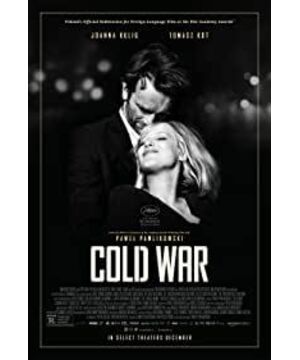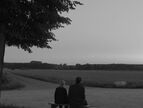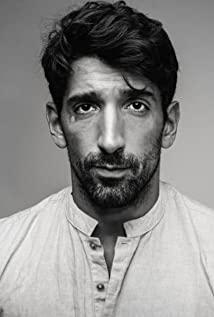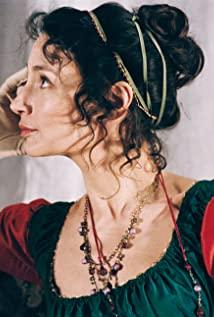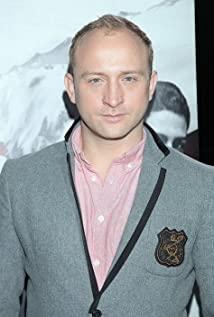"Nun Ida" director Paviu Pawlikowski's 18-year-old romantic film won the Best Director Award in the main competition section of this year's Cannes Film Festival. In the context of the Cold War after World War II, the love story of a Polish man and woman spanning more than half of Europe. At the end of the film, the director paid tribute to his parents who were also exiled in Western countries, a sad and moving love story, and the carp gave 8 points.
In 1949, shortly after the end of World War II, two Polish music artists went deep into the Polish countryside to collect music. At the same time, a large number of young men and women with artistic talents were selected for selection, trying to create a folk art song and dance troupe.
Zura, a passionate country girl, impresses the male composer Victor with her earthy singing. There is an interesting detail here. It’s a bit like the audition of a talent show. After Zula sang a paragraph, the female artist told her to stop. Zura took half a beat between the songs, said something to let me finish the chorus, and then continued. The heroine's bold, persistent and strong character is vividly expressed in this small detail.
The male artist Victor advocates enrolling Zula into the ensemble, while the female artist is a little hesitant about Zura's background in prison for two years. Zura went to jail for stabbing his father, and because "he thought of me as my mother so I used a knife to show him he was wrong." At Victor's insistence, Zura was able to enter the chorus.
After two years of hard training and rehearsals, the folk art song and dance troupe finally took the stage in Warsaw, and the performance was a great success.
The first third of the film is devoted to the life of a song and dance troupe. Because it is also the subject of a socialist song and dance troupe, I easily thought of last year's "Youth". Different from Feng Dao's high-light and deliberately aesthetic expression, this film chose black and white and a retro 4:3 format, which highlights the sense of substitution of the times, just like the Eastern European socialist camp movies I watched when I was a child. Which is better or worse depends on the audience's personal aesthetic habits, and the analogy between the two is of little significance to me. One is the willful obscenity of the elderly who are unable to cope with the loss of youth, and the other is the deep memory and recollection of the past after the precipitation of the years. They are not two works at the same level.
As far as the music part is concerned, a song that Zula sang during the initial audition was later repeated in the movie. The length of the film is not long, only more than 80 minutes, and there is not even a large amount of writing and ink to sing this song completely. However, from the original primitive ecology, to the stage performance after artistic processing, to the extravagant sound of French chanson, it perfectly fits the changes in the heroine's situation and mental journey.
After the successful Warsaw premiere, the cultural authorities suggested that the ensemble create works of art with revolutionary themes. The female artist refused, the political director agreed, and Victor chose to remain silent. After the female artist was kicked out, the song and dance troupe, under the leadership of Victor and the political director, completed a revolutionary artistic creation, which received warm acclaim in the entire socialist camp.
In the days when the song and dance troupe got along day and night, Zula and Victor fell in love. Under the surveillance of political cadres, the two could only carefully hide their enthusiasm. Zura will also be a spy to monitor Viktor and report regularly.
After a long period of patience, the song and dance troupe finally got the chance to perform in Berlin. On the train to Berlin, Viktor tells Zura about his plan to flee to West Berlin, and Zura doesn't respond positively.
Although the film is in the context of the Cold War era, it does not have as much ideological context as the Eastern European films in recent years. The most intense conflict in the movies here is not the ideology of the East and the West, but the difference in the understanding of happiness between the hero and heroine because of their different social classes.
Zura is a simple country girl, and Victor is a sentimental petty bourgeois intellectual. Their perceptions of freedom are contradictory, and Zula and Victor have completely different understandings of how important freedom is to life, love, and happiness. This is the most intense point of conflict in the film, not the so-called ideological battle between the East and the West.
"After all, the floor will end up misunderstanding the freedom of the youth sooner or later for the rest of his life." Song Dongye really wrote a good song with great enlightenment. Such a profound philosophical proposition, I was too lazy to think about it a few years ago. I chose to detour and think about it for young people who are full of poetry and distance in their lives.
Victor waited desperately at the escape date, and Zula did not appear, so he had no choice but to walk across the dividing line between the US military and the Soviet military zone alone. A pair of lovers who love each other deeply have since fallen into the cycle of reunion and separation, and finally moved towards the fate of the times.
From the composition, to the performance, to the sad love story, the film is remarkable. No matter how cold the times are, there are still touching and fiery loves that have happened. This is a very moving one. I have reserved a place for myself in the top ten of the year. I strongly recommend it to everyone.
Resource sharing, entertainment information, in-depth comments, follow WeChat public account: carp movie manual lydysc2017
View more about Cold War reviews


